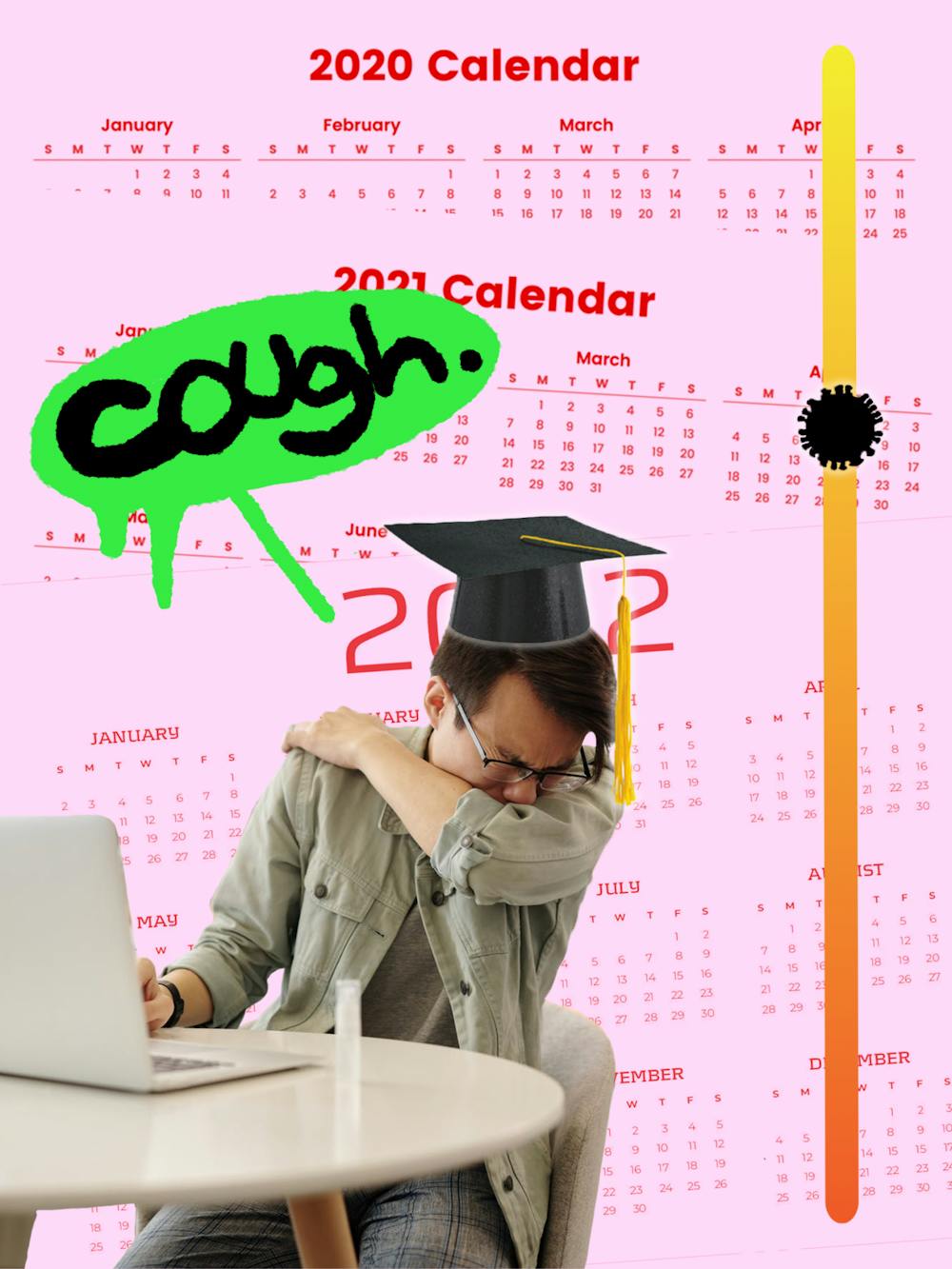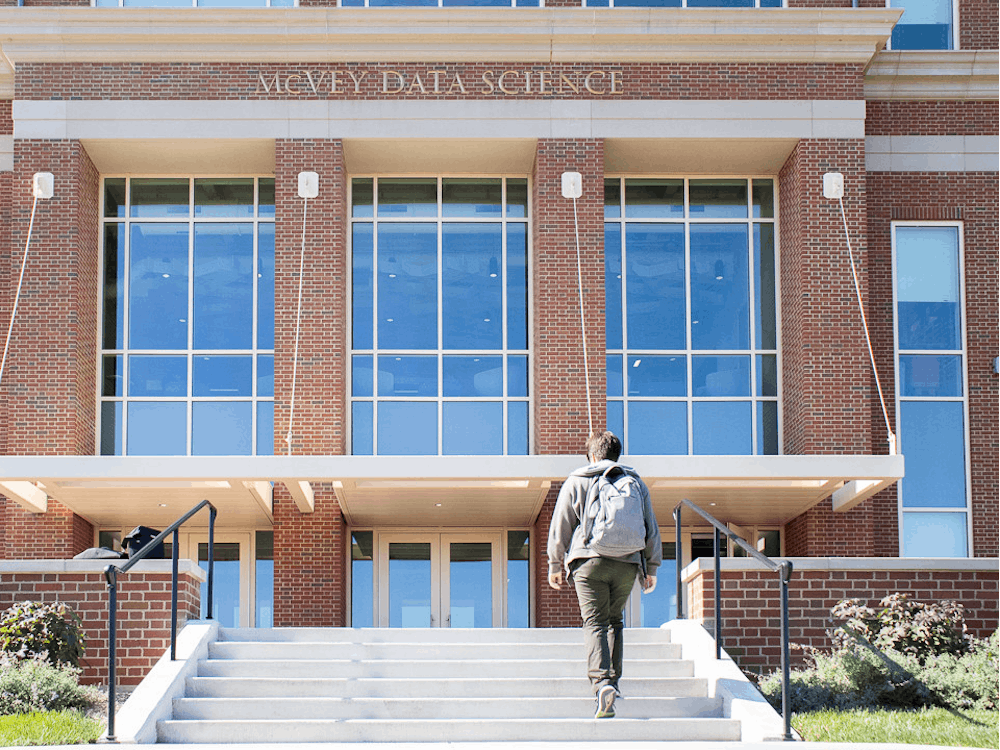November 2018.
Ariana Grande has just released “thank u, next.” Best Picture winner “Green Book” is premiering in theaters while Vanessa Hudgens-led “The Princess Switch” is taking over Netflix. Miami University class of 2022 students are finishing up the first semester of their freshman year, with no idea of what was to come just over a year later.
Fast forward to February 2022. Graduation year – and the beginning of the third year of a pandemic.
The class of 2022 is finally back to in-person classes as the reality of post-graduation life comes hurtling toward them. For seniors Trudy Davis, Alec Preston, Katie Achevich and Eric Carlon, their last semesters of college life are much different than they imagined. Months were spent online, social lives have never recovered, and “senioritis” has been replaced with the all-too-real COVID-19 virus.
As they spend their final months on Miami’s campus, many of these seniors are doing what they wish they’d done freshman year – soaking up every moment.
Trudy Davis
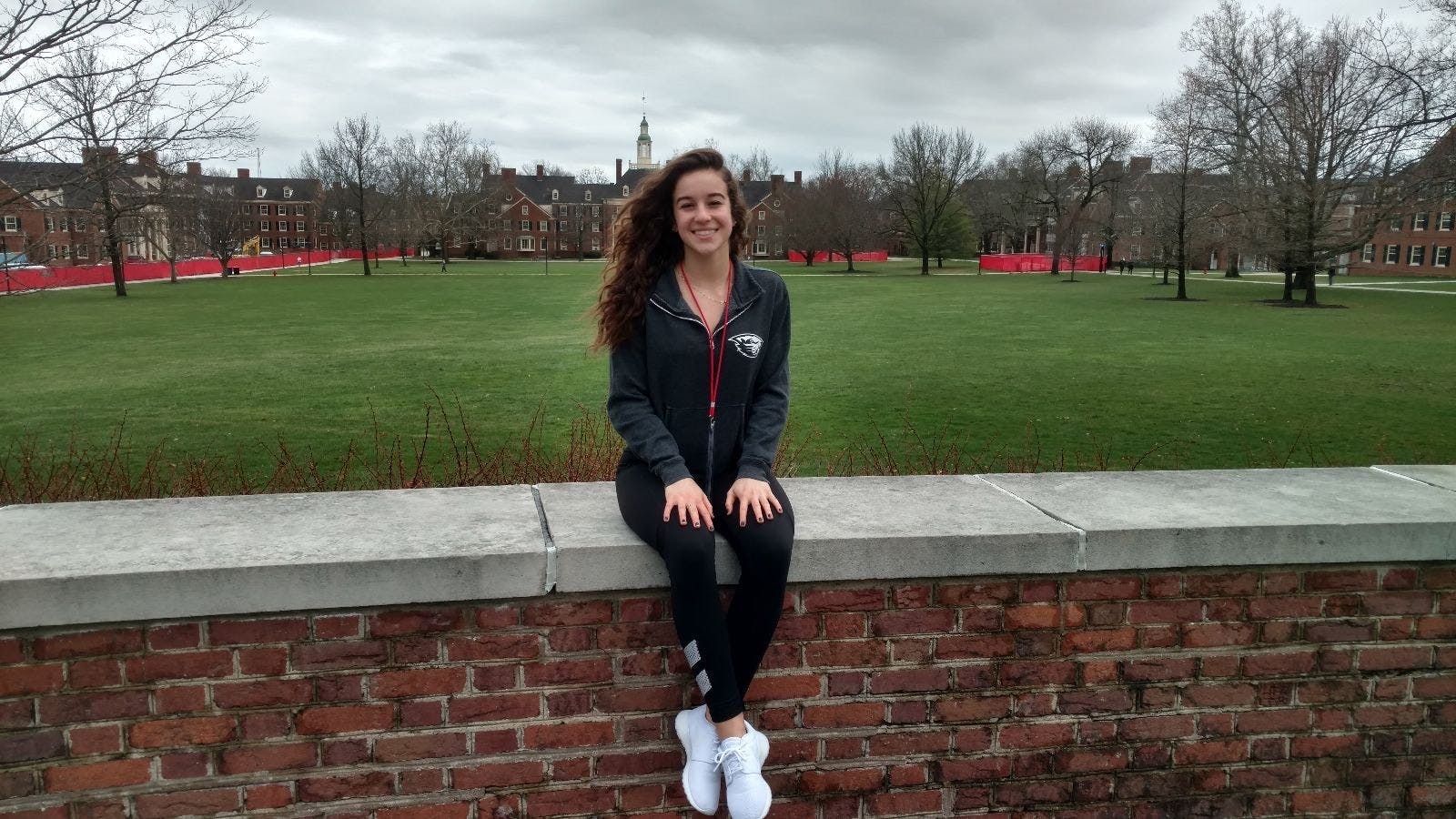
Trudy Davis struggled with online courses and felt socially isolated after being sent home for COVID-19 her sophomore year.
During her first year, Trudy Davis, a biomedical engineering major, made it a point to introduce herself to the people sitting next to her in every class. She’s still friends with some of them to this day.
All her classes were in person, and campus was always busy.
“We were exposed to so many people, and Armstrong was always booming and everywhere you went, it wasn't as spaced out,” Davis said. “It was a lot more tight-knit.”
Enjoy what you're reading?
Signup for our newsletter
But despite her efforts to make friends, it wasn’t enough to avoid the social isolation that came with the pandemic. She felt the effect of COVID-19 in her interactions with people everywhere, from her classes to her social life. Davis had friends, but when it came to online classes, she said it was “every man for himself.”
“With a lot of the online courses that I had, I never really got to meet my classmates,” Davis said. “Your classmates can really help you throughout courses, [and] it can be really tough to get through a course if you don't have someone to help you do it.”
Like many students, Davis struggled with online courses, particularly when it came to real-world job experience. She wasn’t able to get any shadowing hours until this past summer, because all her previous opportunities had been canceled.
Davis plans to graduate this summer and then attend graduate school in a perfusion or cardiology program. None of the schools she’s interested in are close to home, or even in a city she’s familiar with.
But Davis isn’t afraid – after experiencing the effects of quarantine on her social life, she’s going into her first year of grad school with a mission.
“With COVID, I learned my lesson my freshman year,” Davis said. “And so going into this brand new state, in a brand new school, with COVID still [around], I'm going to have to really put in a lot more effort into not only a social life, but an educational relationship type of environment.”
And if she could tell her first-year self anything?
“Do better at making a wider variety of connections and friends. Because when I came back for my sophomore year, I only had a semester and then we went online and then next thing you know, it's senior year.”
Alec Preston
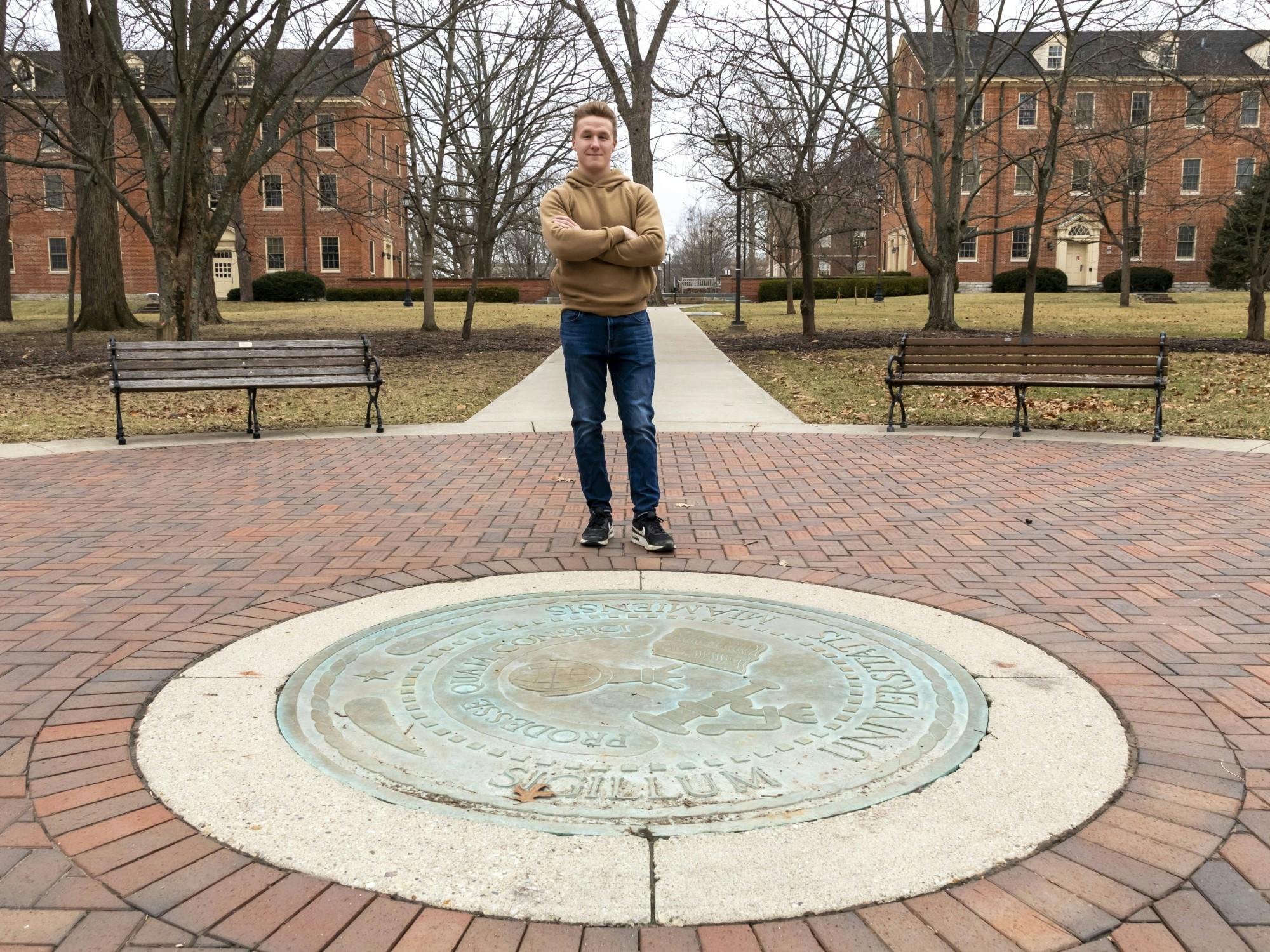
If senior psychology major Alec Preston is happy about one thing, it’s that he got to experience a completely normal first year.
“You start off in college, obviously with a lot of opportunity, not knowing what you want to do, [or] what you want to do with so much opportunity to find yourself,” Preston said. “And then to shift from having all this opportunity, to having to do it in a kind of secluded environment, I feel like it's a very different approach.”
Like other seniors, Preston felt the impact of COVID-19 in his social life and in his sense of involvement with the Oxford community. Whether it was joining on-campus organizations, working on group projects in person or just catching up with acquaintances Uptown, Preston missed the feeling of being part of a community during the pandemic.
“A lot of times you get caught up in the hustle and bustle of what the town is and what the school is,” Preston said. “And you don't appreciate how lucky you are to go to a place like this, where you can meet people from a lot of different backgrounds, do so many different things and become important in a smaller community.”
While the COVID-19 pandemic did come with its setbacks, Preston found a silver lining.
Prior to the pandemic, Preston hadn’t narrowed down what he wanted to do with his major. After watching tons of people struggle with their mental health during the pandemic, he knew what he had to do.
Following graduation, he’ll attend graduate school to eventually work as a mental health counselor.
“COVID-19 happened, and that affected a lot of people in terms of mental health, myself included,” Preston said. “And I [had] to watch how it affected a lot of people around me, and whether it was the help that I got or the help that I gave to people, I noticed the impact that that had … And then I found a passion in me.”
Katie Achevich
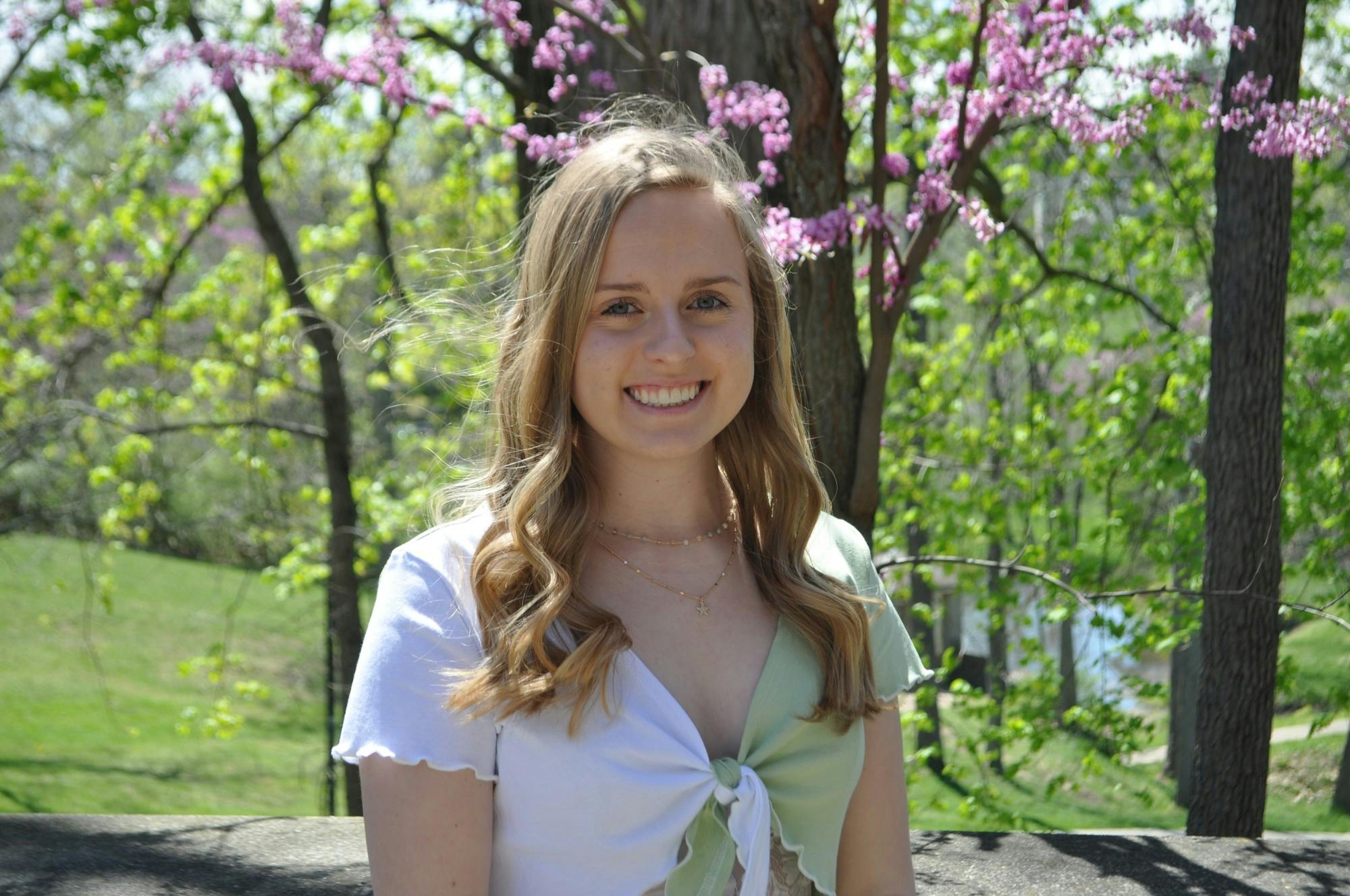
Katie Achevich feels she lost study skills while online learning and had a hard time returning to in-person classes.
For senior psychology and neuroscience major Katie Achevich, the memory of attending an in-person class her freshman year without any regulations seems like a million years ago.
“Even the thought of not wearing a mask and going into class is so weird to me,” Achevich said. “But that was a total reality. We used to do that, and it was perfectly normal.”
Now, with classes finally back in person but masks still required, things don’t feel quite the same as back then. Achevich is grateful to spend her last semesters in person, but misses talking to people face-to-face and getting to see their expressions, without the “blocker” of a mask.
When classes were online, she appreciated the flexibility of her professors, especially during the first semester or when taking exams. Open-note exams made virtual life a little bit easier, but last semester, Achevich ran into an unexpected problem.
“Looking back and now [that] I'm in person and my exams are in person, I don't know how to study anymore,” she said. “I totally forget how to do it. So it was really, really hard getting back to the groove of that last semester.”
The best thing she’s learned from this experience, though, is how to be adaptable. After adapting to, and succeeding in, some of the most unusual college experiences in recent history, she knows she can handle anything that comes her way.
Achevich does have one small regret, however: not living in the moment every chance she had before the pandemic.
The nights freshman year where she said she was too tired to go out with friends. The sophomore year movie nights in her dorm that she skipped out on. Achevich thought she and her friends had plenty of them left.
“But we really didn't. You just never really know what's going to happen.”
Eric Carlon

Eric Carlon stayed in touch with his friends after being sent home for COVID his sophomore year, but struggled in online classes.
Senior finance major Eric Carlon was studying abroad in London when the COVID-19 pandemic hit.
Suddenly, he found himself up at 3 a.m. buying plane tickets for a flight home the next day.
But once he got home and was in quarantine along with the rest of the country, Carlon’s experience was different from many others. His twin sister, who attends Ohio State University, struggled with suddenly being apart from her college friends.
But for Carlon, the opposite was true. Instead of suffering, some of his friendships thrived.
“Despite being home and quarantining with my family, I felt like I managed to make some of the relationships I had at college still stronger,” Carlon said.
He talked to his friends every day, whether through text, Snapchat or even Xbox.
While his social life was easier than most, Carlon found himself struggling with online classes. Online learning felt less serious, so he took his work less seriously.
After he returned to campus, things were still isolated.
“I think everyone kind of just stayed in their little bubble,” Carlon said.
But once again, he made the best of the situation. He constantly spent time with the other members of his apartment, and became very close with his roommate.
Even now, things aren’t as easy as freshman year.
“It was just very easy to throw yourself out there and meet new people,” Carlon said. “Talk to a lot of people, go Uptown [and] experience Uptown the way it was meant to be experienced. I think now it's kind of back to what it used to be, but freshman year it was just very much natural and what everyone was used to.”

